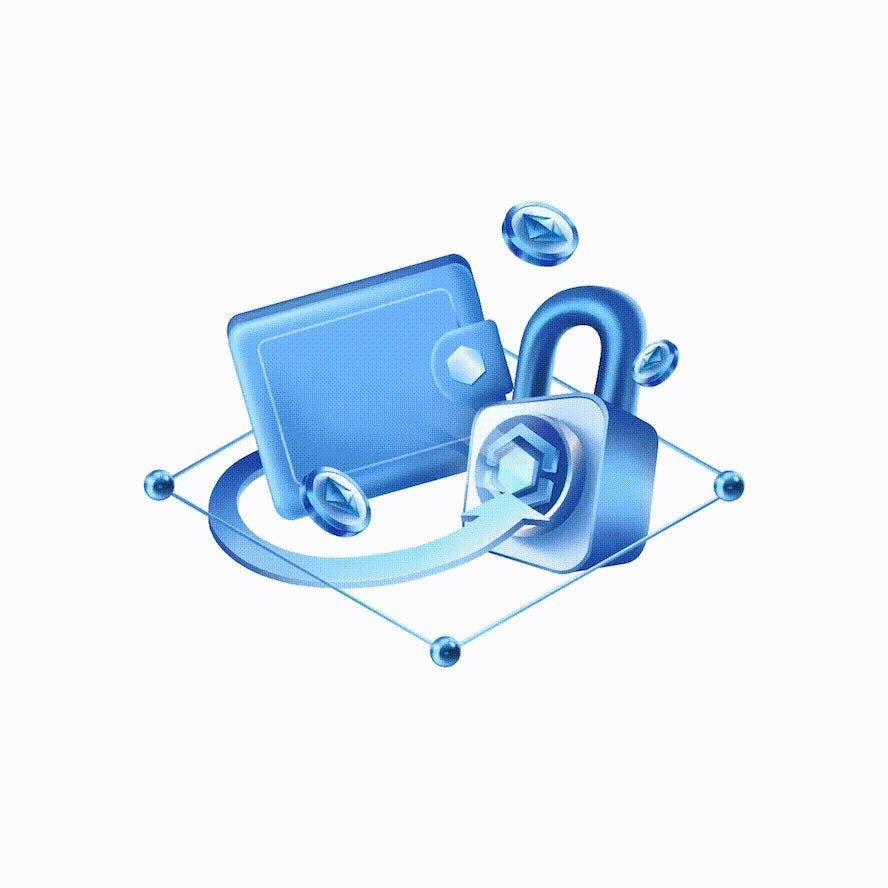
Crypto Wallets 101
27 Mar 2023

27 Mar 2023
Crypto wallets are a fundamental aspect of any cryptocurrency. This short guide ‘Crypto Wallets 101’ will explain what a crypto wallet is and why it matters.
As the name implies, the wallet is where you store your virtual currency and it behaves almost exactly like the wallet in your back pocket. Your access to tokens on the blockchain that you own is governed by the wallet, and keeping it safe is the name of the game. When you grant access to make a purchase or trade via your wallet, the tokens are removed from a blockchain address and are added to another blockchain address i.e. the recipient of the transaction. And the wallet updates your balance automatically when tokens are added or removed.
There are two types of crypto wallet – hot wallets and cold wallets. Both store your virtual currency securely, but there are some key differences to note.
The most common type of storage, hot wallets are typically software-based, such as a smartphone app or an online service. The common factor is that hot wallets are always internet connected making them ideal for day-to-day spending and transactions.
Cold wallets typically use hardware, such as encrypted USB thumb drives, to store crypto coins offline. They are particularly popular with people who have large crypto holdings that they intend to hold as a long-term investment.
Whether using hard or soft technologies, if you control direct access to the wallet with no intermediaries, it is called a ‘self-custody’ wallet. This means that you are responsible for managing and operating the wallet and its contents. If you lose the passphrase or the hardware key, you also lose any tokens in your wallet.
It is important to note that if you are not using a self-custody wallet, it means that someone or something else has control over your tokens. That could be a centralized exchange which has issued you a username and password, or some other scheme. In that case, you do not have direct control over your tokens and cannot verify they exist. If something like a hack or liquidity crisis were to occur, just like we are reading about frequently in the media, your tokens would likely be temporarily or permanently inaccessible.
Although they get the job done, there are several problems with most crypto wallets currently available:
The barrier to entry into cryptocurrency has gotten lower, but wallets are still quite difficult to use for non-technical users. Perhaps the biggest problem is the need for an unintuitive, randomized 12 or 24-word security passphrase that secures the wallet and its contents. These pass-phrases, known as “seed phrases” can be extremely long making them hard to remember – and if the passphrase is lost or stolen, the wallet owner cannot recover their crypto. Ever.
Furthermore, users are instructed not to save these phrases on their computers or phones, and instead to write them down on paper, introducing further risk of loss due to water or fire damage, theft, misplacement, or degradation.
One of the quickest ways to get started with virtual currencies is to choose a hosted wallet. You can sign up to an online service and allow them to protect your coins with the added benefit of being able to recover your passphrase if it is lost. However, if the service provider goes bust, or their platform is hacked, you could still lose everything since you only have a username and password in your control, not the keys to the actual wallet that contains your tokens.
Cold wallets are incredibly secure – so long as you can remember your passphrase and you don’t lose the hardware device. Again, if the passphrase is forgotten, the wallet’s contents are gone forever. And if you want to transfer or spend any of your coins, you must have the hardware wallet available and in your possession. It also needs a battery with some charge!
For a technical user, wallets are a manageable frustration. For less technical people, crypto wallets are a significant barrier to adoption. And if people cannot get onboard with virtual currencies, the technology will struggle to achieve traction, which would be a real shame, effectively delaying many of the most important developments of Web 3.0.
Blockchain-powered technologies promise to give people greater control of their finances and protection from the over-printing of money by central banks – and therefore the economy itself. Wallets need to become more user-friendly to avoid the many positive world-changing developments from being delayed.
Which type of wallet will you choose? (Gridlock, obviously).
- - -
Written by Reid Zedkongor

Reid Zedkongor is peeling away layers of confusion around blockchain and cybersecurity. With a computer engineering background, he can dive into the details of crypto complexities to make crypto adoption easy for everyone. In his free time, he often reads fiction or enjoys a good laugh over a beer.